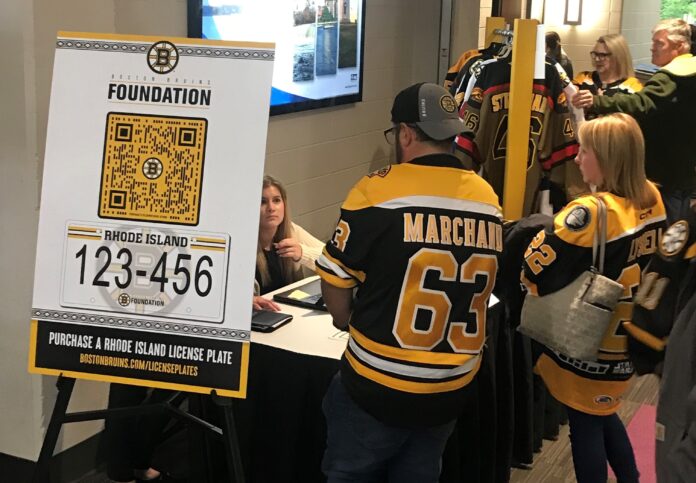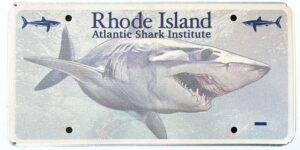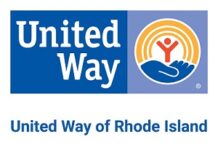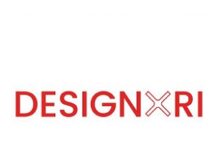
PROVIDENCE – Bob Sweeney is now breathing a long-awaited sigh of relief.
On April 29, prior to the Providence Bruins’ playoff game at the Amica Mutual Pavilion, the Boston Bruins Charitable Foundation Inc. license plates were distributed to approximately 600 people who preordered the car tags. Sweeney was out front with Bruins and R.I. Division of Motor Vehicles representatives meeting fans as they finally obtain their black-and-gold plates, where the funds from license plate sales will support both youth hockey across the state and Hasbro Children’s Hospital.
“This is a long time coming,” said Sweeney, a former Bruin who now is the Bruins Foundation’s president. “I thought it might have come a little quicker. We’re extremely excited. It only made sense to do it there as [the P-Bruins] had a game that night.”
Sweeney though is still perplexed why it took nine years for the Bruins plates to come to fruition after getting approval from the state despite doing numerous initiatives to promote the plates in that time. The Bruins are not alone in struggling to get their image on vehicles to support local worthwhile causes.
Of the 40 charity license plates supporting various organizations that the state approved set to be made in Rhode Island, only 10 are in production, with the rest in limbo. One local organization in about 24 hours worked diligently to get those needed preorders, while another nonprofit helped get legislation changed to make it easier for organizations to avoid the same hassle the Bruins had.
While that state law was recently modified to lower the number of required preorders for charity license plates to be produced, it comes with financial risk for nonprofits.

State law had once required nonprofits to receive 900 preorders for their charity license plates to be produced – the requirement has since been lowered to 600. Also, organizations must get state lawmakers to sponsor and then approve legislation for charity plates to be created, RIDMV spokesperson Paul Grimaldi told Providence Business News.
John Howell, owner of Warwick-based newspaper group Beacon Communication Inc. who also oversees the Rocky Point Foundation, said organizations, including his foundation and even Providence College, have had various issues getting enough preorders to produce plates. Rocky Point Foundation received at most 250 preorders for its charity plates, Howell said, because some previous preorders got canceled and slow pace in receiving orders.
Problems lingered even when the preorder requirement was lowered to 600, Howell said.
“There was renewed energy [with nonprofits], but we could not get to 600,” Howell said. “This just aggravates people because now you’ve got 200 people who have bought a plate and they can’t get a plate. Who are they mad at? They’re mad at the Rocky Point Foundation. They’re mad at PC, the Bruins; they’re just [ticking] off a lot of people.”
In response, state lawmakers last year following Howell’s advocacy on behalf of nonprofits passed legislation to lower the minimum required preorder count for charity license plates to 150.
There’s a catch in the new law, though, where the 600-perorder mark still applies. If an organization receives at least 150 confirmed license plate preorders, but is less than 600 preorders, that nonprofit, per the state law, must pay a “nonrefundable payment” to make up the difference.
And it can get expensive. Nonprofits could pay as much as $13,500 to cover the preorder shortfall if it receives 150 preorders for charity license plates at $30 per plate order. Howell acknowledged it is a financial “gamble” if organizations cover the balance to get the plates going.
“If you get to 600 sales, you get your money back. If you don’t, you’ve lost,” Howell said. He also said as of now, there’s no plan for nonprofits to ask the state to further lower the 600 threshold.
Promotion is critical for nonprofits, too. Grimaldi said it is up to the organizations themselves to design, promote, accept and track orders, and hold the application fees in escrow until that minimum preorder count has been met. From there, the RIDMV gets the preorder list and starts plate production and distribution, Grimaldi said.
The Atlantic Shark Institute understood this and didn’t want the same problems the Bruins had. On April 27, the South Kingstown-based nonprofit that supports shark research, unveiled its new charity license plate. It was designed by marine artist Paul McPhee and features a mako shark emblazoned across the plate. Funds raised through the plate preorders and subsequent sales will benefit the institute’s various research projects.
In less than a day after unveiling the plate design, the institute met its preorder goal and, as of Monday morning, the institute sold approximately 2,800 plates. Institute Executive Director Jon F. Dodd told PBN the nonprofit’s marketing put an emphasis on community input. The institute asked supporters what they want the plate to look like. Logos, close-ups of sharks and silhouettes of shark fins were discussed in the process, Dodd said, before McPhee’s imagery was made to the community’s approval.
Dodd also said utilizing social media and word of mouth also helped the institute meet its preorder minimum.
Moving forward, Dodd says its license plate, and proceeds from its sales, will be a “significant benefit” for the institute. He said the plate sales could help the institute better afford acoustic shark tags to help with its shark research. With $20,000 raised from plate sales, 45 tags could be purchased, he said.
“This is of considerable value to us,” Dodd said. “The more we can tag, the more things we can do and the more we learn.”
Bruins fans now will only have to wait up to four weeks for their plates to come in the mail, Grimaldi said. Those who could not make it to the AMP this weekend can obtain the plates at the RIDMV’s Cranston location.
Both the shark institute’s and Bruins plates, along with other available charity plates supporting various local causes, can be ordered through the RIDMV’s website.
The available plates’ one-time fees cost around $42. Some plates may require surcharges upon registration renewals to support the charitable cause, as well. The Bruins and the shark institute each have a $10 renewal surcharge for its plates.
For Sweeney, he now hopes people who see the Bruins plates on the road knowing they are now available, they no longer have to wait long to get them.
“They’ll [finally] say ‘hey that’s cool, I want one of those,’” Sweeney said.
James Bessette is the PBN special projects editor, and also covers the nonprofit and education sectors. You may reach him at Bessette@PBN.com. You may also follow him on Twitter at @James_Bessette.












